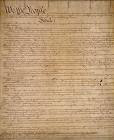
The Fifth Amendment to the Constitution provides in relevant part that "private property" shall not "be taken for public use, without just compensation." This clause functioned for two hundred plus years to protect private property rights in America. It provided a bright line limitation on the Government's ability to use its police power to take the private property. The Government could use the legal process of eminent domain to take private property if it was then going to put it to a "public use." A public use is something that would involve use of the property by an arm of government, such as a military installation, or a use that would open up the property to the public at large, such as a road or a park.
That all changed when the Supreme Court decided Kelo v. New London. The liberal wing of the Court prevailed and, in substance, rewrote the Fifth Amendment to the Constitution. No longer is government limited to taking private property only if it is going to put the property to a public use. It is now sufficient that the Government show that the private property will be used for a public "purpose," such as increasing the tax revenues of the government. Thus a government can now take your private property and transfer to another private property to be commercially developed so long as the Government claims that the public - i.e., the government itself - will somehow gain.
The effect of this change to the plain language of the Constitution are now just being felt. Drew Carey hosts a very good webcast showing how this decision is effecting the poor and the working class. You can see it here. And indeed, what you see in the Carey webcast is anything but an isolated instance.
There are, for all practical purposes, two approaches to constitutional interpretation, both of which were clearly evident in the Kelo deicision. The first of these is the approach of the "originalists," such as Justices Scalia and Thomas. Origninalists believe that the Constitution is a fixed instrument and that it is the duty of the courts to interpret the Constitution as and to the extent they can discern what the original drafters intended. This limits the discretion of the Court. For example, originalists do not see abortion as a constitutional right. It appears nowhere in the Constitution and its an activity wholly local in nature. Orignalist thus view abortion as beyond the power of the federal government to regulate.
At the opposite end are proponents of the "Living Constitution," such as Justices Breyer and Ginsburg. They do not feel constrained by original intent and are willing to look outside of the Constitution, to foreign law or current social mores in order to interpret the Constitution. To them, the Constitution should be given a meaning that they perceive as appropriate in the modern day - in essence, imposing their own personal belief system on America as a matter of constitutional law. For a good look at this issue, see Justice Scalia's speech on the living constitution in 2005, and here is a transcript of the debate between Justices Scalia and Breyer on the issue of using foreign law to determine the meaning of the U.S. Constitution.
Looking outside the four corners of the written Constitution and the intent of the drafters makes of the Supreme Court a supra-legislature, taking over the position of Congress and the executive to create laws rather then to interpret them in light of the Constitution. That is not the function for which the Supreme Court is designed. Besides not being assigned any legislative role in the Constitution, the Supreme Court does not have the ability of Congress to hold hearings or subpoena witness - in essence, to make findings of fact beyond whatever record lies before it. Nor does allowing the Court such leeway comport with the concept of democracy. The Supreme Court justices are not subject to the will of the people, being an unelected body with tenure for life. And Drew Carey shows us just how much of a Pandora's box the Living Constitution is.
Saturday, November 17, 2007
The Living Constitution, Private Property Rights and Eminent Domain
Posted by
GW
at
Saturday, November 17, 2007
![]()
Labels: 5th amendment, Breyer, constitution, eminent domain, Ginsburgh, kelo, kelo v london, living constitution, originalists, private property, Scalia, Supreme Court, Thomas
Subscribe to:
Post Comments (Atom)

















































No comments:
Post a Comment